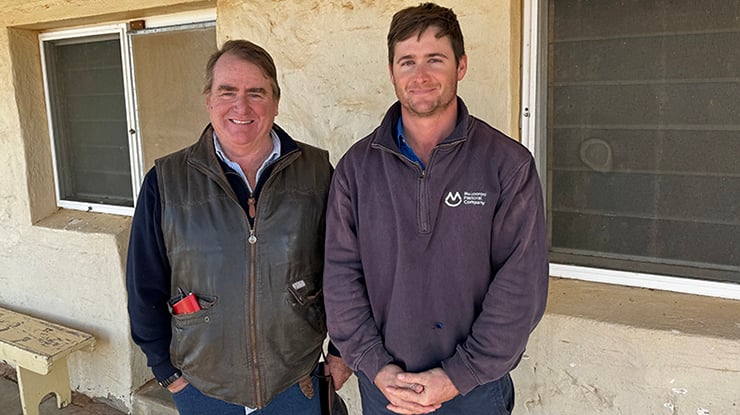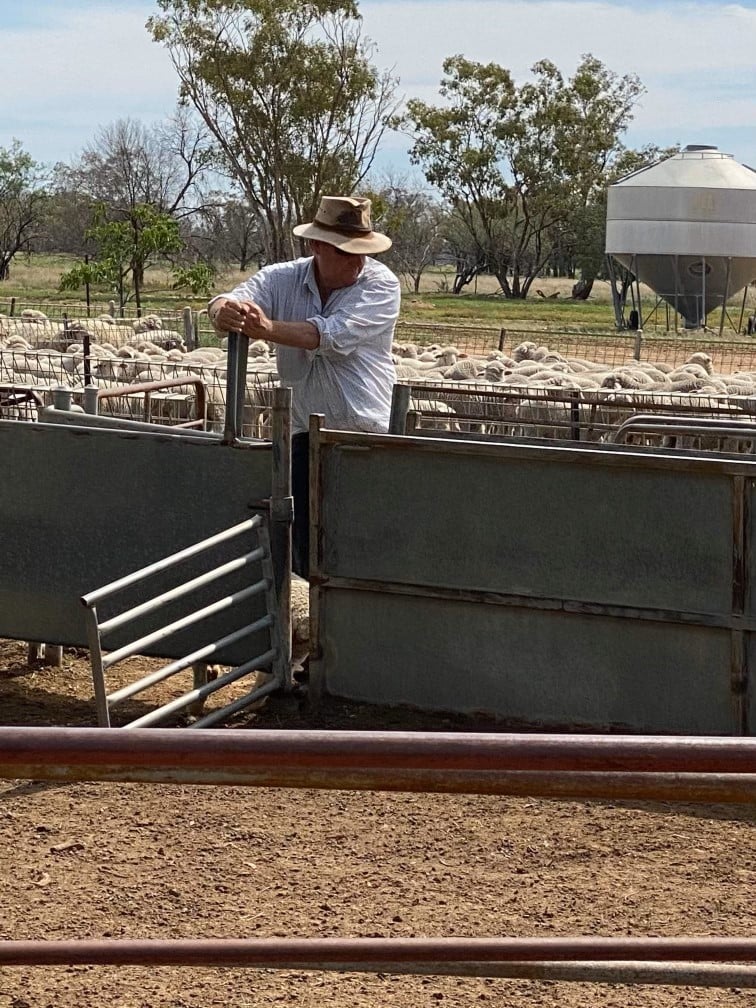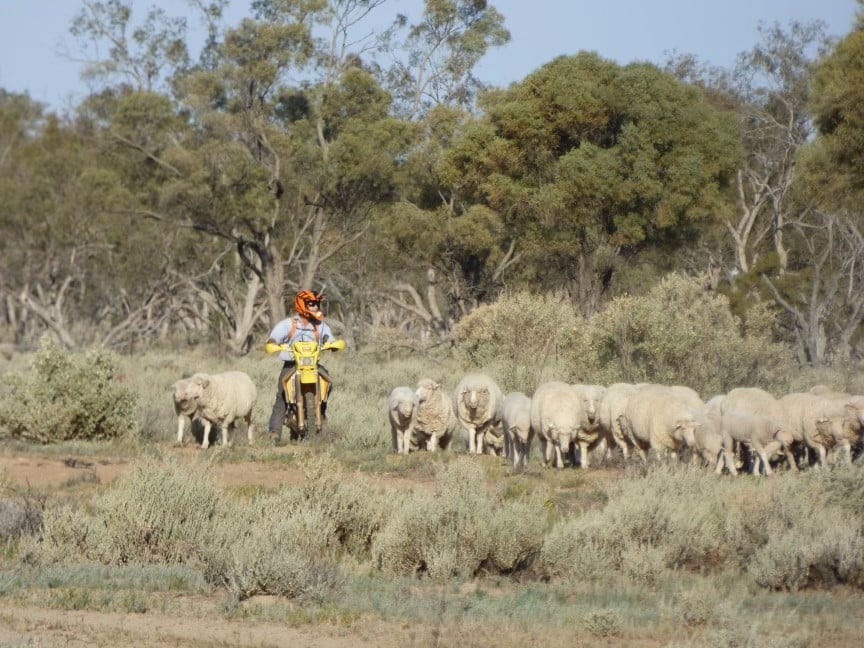Leading from the front for better farm safety
22 July 2024
 James (left) and Ed (right) Morgan, create safety culture from leading from the front.
James (left) and Ed (right) Morgan, create safety culture from leading from the front.
Key points:
- MLA has collaborated with #PlantASeedForSafety to share practical, on-farm safety tips in the spirit of Farm Safety Week and the Do as I say AND as I do campaign.
- Father and son James and Ed Morgan are producers in SA and NSW who are leading by example when it comes to farm safety.
- Managers can create a safety culture on-farm by leading from the front, prioritising the mental and physical wellbeing of their workers (as well as their own), and keeping an open line of communication around safety.
To continue the story of Farm Safety Week, MLA has partnered with #PlantASeedForSafety to bring you some practical tips from father and son duo, James and Ed Morgan, beef, lamb and wool producers from SA and NSW.
James is the Managing Director of Mutooroo Pastoral Company, which comprises of five stations across SA and NSW totalling a land area close to 5.25 million acres.
The importance of safety has been instilled in James from early in his career.
“My father, an experienced lawyer, would bring up safety at staff meetings like a broken record,” James said.
“Back then, we all incorporated safety into our actions and provided essential PPE, but that was the extent of it. Later, we went on to write policies and expanded what safety equipment we made available, but all of this was just the tip of the iceberg.”

The importance of safety has been instilled in James from a young age.
With a lifetime of industry experience witnessing on-farm incidents and rural people not looking after their health, both James and Ed see huge value in brushing up on farm safety knowledge. Here, they share their thoughts on leading from the front when it comes to safety.
The importance of a safety culture on-farm
Creating a culture of open discussion and identifying opportunities for improvement within your business – particularly in areas that could cause trauma or even fatality – are two of the biggest safety priorities, according to James.
“It’s important to make sure these discussions are inclusive of all family, staff and contractors to ensure full engagement and accountability,” he said.
Operations Manager, Ed, agrees with this point. “It’s important to me that I’m showing and demonstrating how things should be done by leading by example.”

Leading by example is one of the key factors in creating safety culture on farm.
This mentality is the epitome of #PlantASeedForSafety’s current campaign Do as I say AND as I do. which aims to showcase both industry leadership and the importance of starting conversations that facilitate cross-generational learning.
The impact of mental and physical wellbeing
Both James and Ed highlighted the role that physical and mental wellbeing play in safety.
“Physical wellbeing and, as importantly, mental wellbeing, are paramount to having a happy and successful life in farming,” James said.
In encouraging the adoption of good mental and physical wellbeing practices, Ed has always supported his staff to exercise after work.
“Exercising is something that has had huge physical and mental health benefits for myself,” he said.
Getting staff involved in local sport is something that Ed also encourages, not only for the wellbeing benefits but also because it helps in building a team environment and atmosphere.”
Communication is key
There is no doubt that communication and not being afraid to speak up when you feel something isn’t right, is essential for safety.
“Growing up and working within our family business, there’ve been many occasions where I’ve had to speak up to senior staff on the need to move out of dangerous situations. I’ve also cancelled a 1am sheep loading plan because I knew it wasn’t a safe thing to be doing at that time of night,” Ed said.
But communication goes further than just the operational day-to-day, and James agrees that the role of communication is huge in ensuring the team’s wellbeing.
“I not only encourage our station managers to take breaks, but actively try and make it easy for them to do so. I know how heavy the workload is that they carry.”
“Make no assumptions about how people are travelling. Ask the right questions to find out what is beneath the surface,” he said.
“Usually, whatever’s going on can be fixed with care and communication.”
Ed willingly admits that farm safety is an ongoing work in progress and is always open to feedback from his workers on how he can continue to improve this area. He believes the most effective ways to enact change is through conversations face-to-face and building relationships with your team, learning from each other and empowering everyone to speak up.


